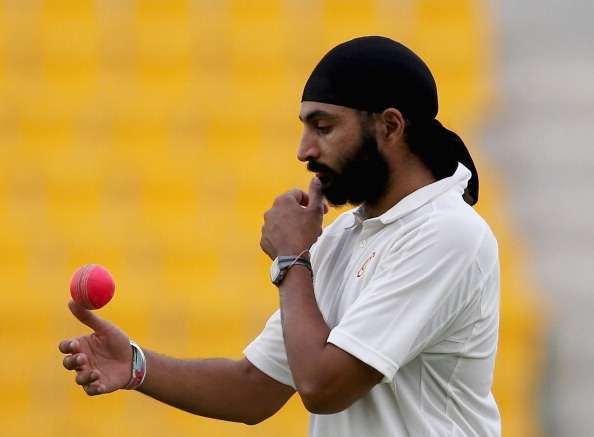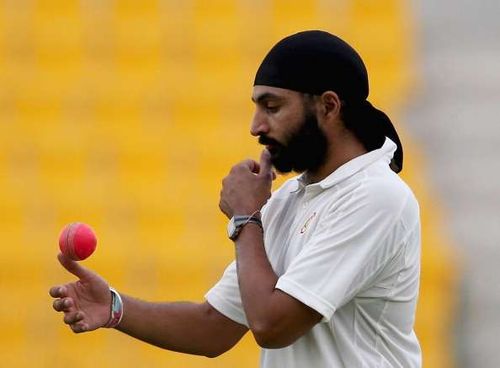
Monty Panesar reveals how he successfully emerged from mental health issues
Monty Panesar is quite an enigmatic personality - capable of both boom and bust. With England still searching for a specialist spinner to replace Graeme Swann, the 34-year old has successfully managed to conquer mental illness by making a comeback into county cricket.
Speaking to ESPN, the left-armer opened up on his arduous battle with depression and paranoia. He is not alone in this regard with the likes of Jonathan Trott and Marcus Trescothick too having to deal with similar issues.
Panesar revealed, “I felt I had low self-esteem, especially when my confidence went low, I would get into a place of paranoia. Instead of being quiet about it, I would get quite aggressive towards umpires and opposition towards my own team- mates.”
He added, “I got quite paranoid about things. There was nothing there, but I felt there was something there. Suddenly you overthink and over-analyze things. I felt I got into a place where I had anxiety and depression issues.”
Reflecting on the effect that his problems had on family members, Panesar felt, “It was very difficult for family and friends because they don't know what is really going on even though they love you and they want the best for you.“
The Luton-born cricketer noted, “The way it made me feel was quite low in myself. I was quite angry with other members around me and I can see how people then got quite frustrated with that.”
However, it appears that all those ‘dark days’ are now behind him. Armed with 167 Test wickets from 50 matches at an average of 34.71, the seasoned campaigner is now looking to bring his career back on track.
An instrumental member of England’s famous series win in India during 2012, Panesar is now the mental health ambassador for the Professional Cricketers Association (PCA) where he uses his experience to advise upcoming players.
Monty asserted, “As sports people you pride yourself on being mentally strong and ruthless, all the attributes that lead to competitive performance. But, when you have a weakness in you, you don't really want to open up to it. You always want to show that you are strong.”
He opined, “It's really important when you do have a weakness that you really open up to it. The quicker you open up, the quicker you will get the support and the help. It's really important when you feel down that you engage with other human beings and you speak to other people about it.”
